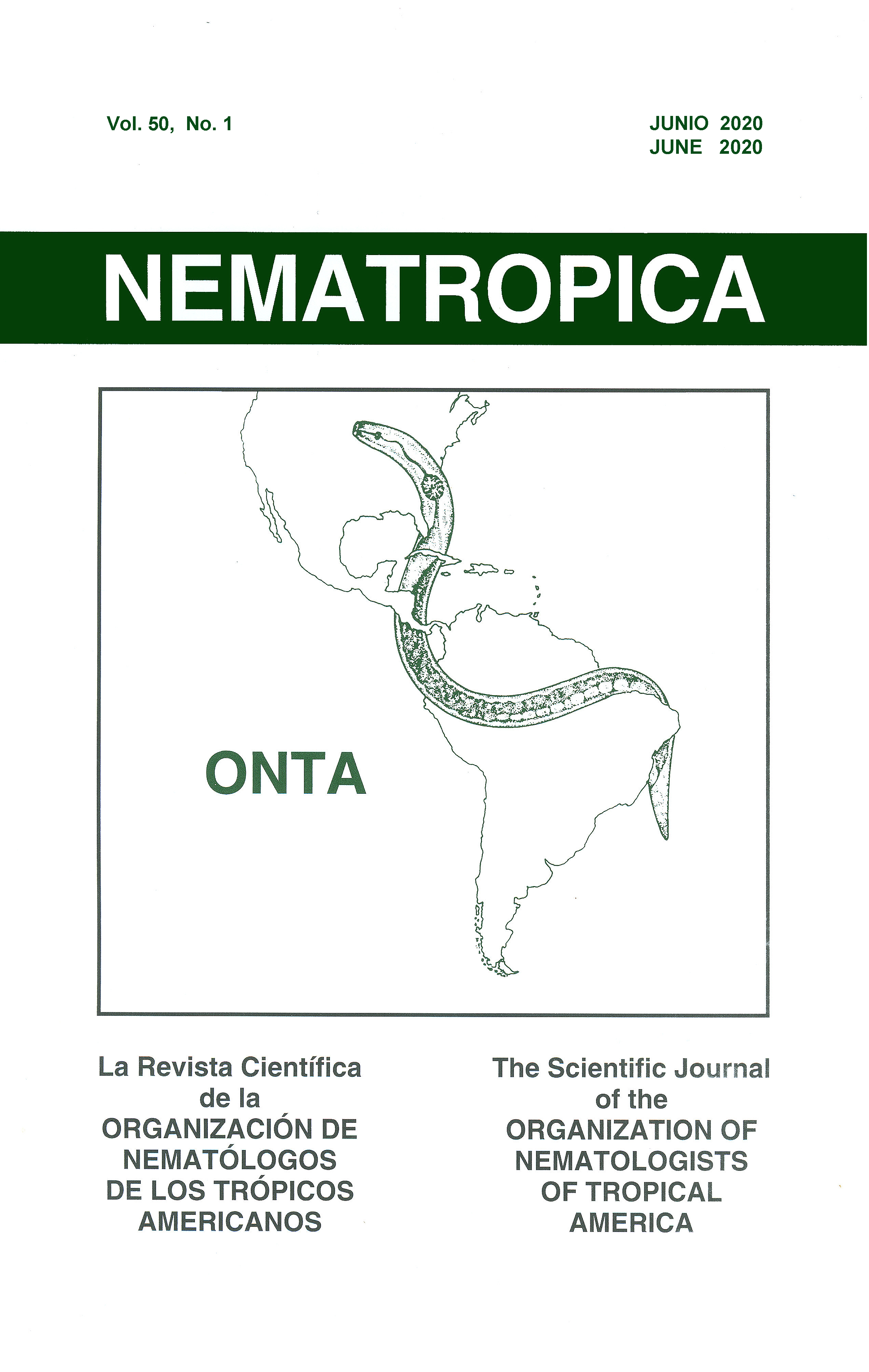ASSESSMENT OF SEED-APPLIED FLUOPYRAM FOR MANAGEMENT OF MELOIDOGYNE INCOGNITA IN SOYBEAN
Abstract
The field efficacy of seed-applied fluopyram was evaluated in 2015, 2017, and 2019 to manage Meloidogyne incognita on a moderately resistant and susceptible soybean cultivar and in a greenhouse pot experiment at high, moderate, and low nematode population densities. Based on the percent of root system galled at 45 or 60 days after planting, the significance of M. incognita suppression by seed-applied nematicides was similar to that of abamectin, Bacillus firmus (strain I-1582) and fluopyram + B. firmus treated seed. Further, these nematicides provided similar grain yield protection that was most consistent at low nematode population densities on the susceptible cultivar. In contrast, grain yield was greater on the moderately resistant cultivars regardless of nematode population density. In the greenhouse pot experiment, fluopyram provided a numeric suppression of M. incognita infection compared to the nontreated control, but similar to that of other seed-applied nematicides. Overall, soybean root and grain yield protection by seed-applied fluopyram was similar to that of other seed-applied nematicides in soybean.

